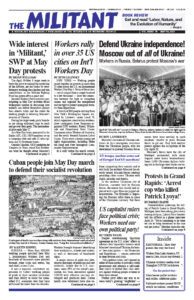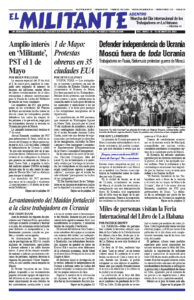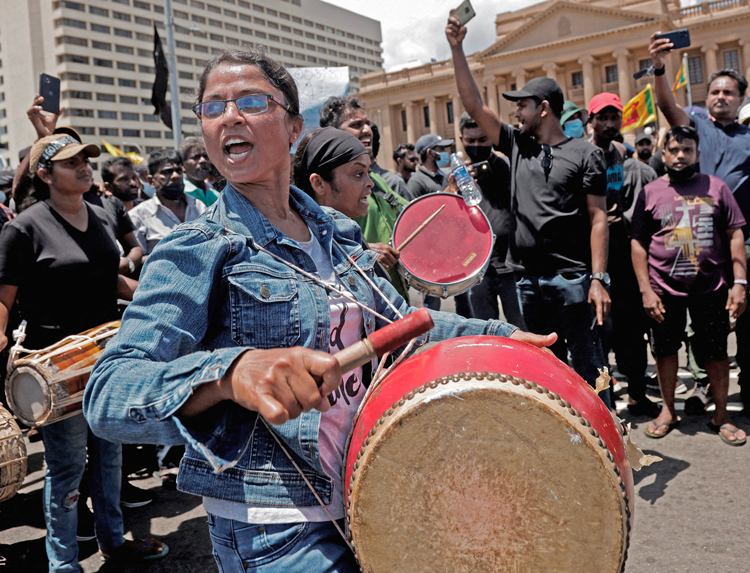A one-day nationwide strike in Sri Lanka April 28 demanded that President Gotabaya Rajapaksa resign. The strike comes amid weeks of protests in this island nation over rising inflation, power outages and shortages of food and fuel.
“Costs are increasing every day, businesses are closing and people have no way to live,” bank teller Samanthi Ekanayake told Reuters. “There is no fuel, when we go home there is no electricity and no cooking gas to make meals.”
Teachers and train drivers joined the mass walkout, the first nationwide strike by the trade unions since 1980. Across the country vegetable markets were closed. Workers from vital tea and rubber plantations and garment factories joined the action. In Colombo, the capital, workers marched chanting, “Go home Gota. Go home Gota,” referring to the president. More than 100 trade unions, some affiliated to the Rajapaksas’ ruling Sri Lanka Podujana Peramuna party, joined the strike.
Unable to cover interest payments to wealthy bondholders on the government’s $51 billion public debt, Sri Lankan officials are requesting up to $4 billion in new credit from the International Monetary Fund. But the IMF has made clear that a loan is contingent on tax hikes and spending cuts on social programs, which would hit working people the hardest.
The country’s trade union officials have threatened an open-ended strike starting May 6 if the president and the government do not resign.


